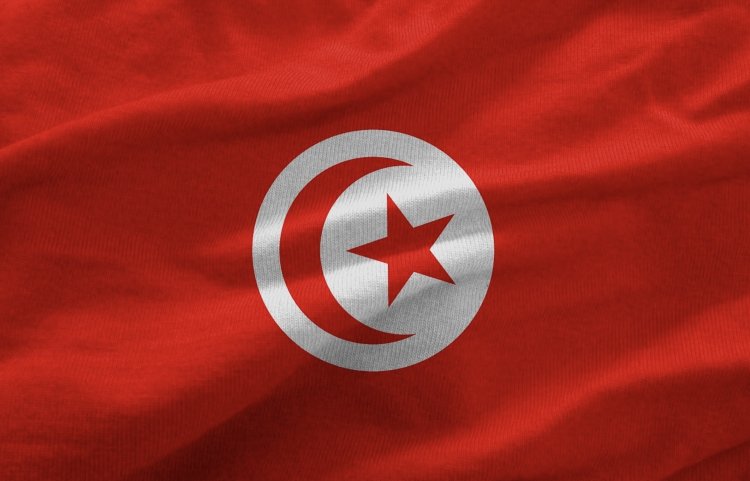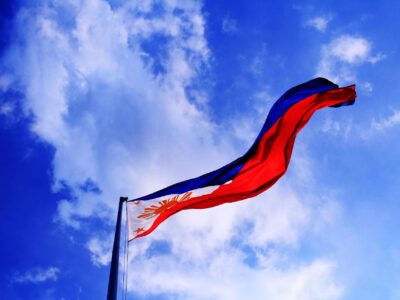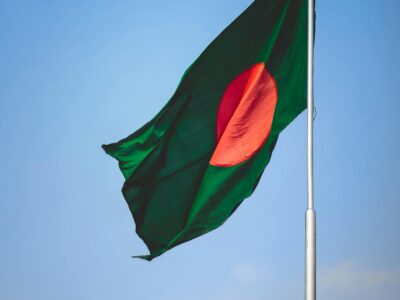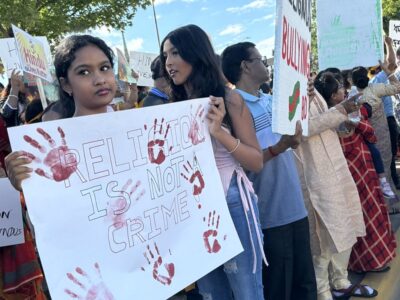01-06-2024
G.F.
Middle East and Human Rights Researcher
Global Human Rights Defence
On May 11, 2024, Tunisian lawyer and media personality Sonia Dahmani was arrested at the Bar Association Offices in Tunis, where she currently remains detained in Manouba prison.
Two days later, as the National Order of Lawyers (“ONAT”), declared a strike in protest, another lawyer, Mahdi Zagrouba, was arrested whilst broadcasting live. Known for his opposition to Tunisian President Kaïs Saïed, Zagrouba was detained, allegedly, because of “physical and verbal assault on two policemen near the courtroom.” At his hearing, signs of beating, bruises, and scratches on various parts of his body; evident of degrading treatment and torture, led him to lose consciousness and collapse, as per UN experts.
On May 22, renowned journalists Borhen Bsaies and Mourad Zeghidi were sentenced to a year in prison over radio comments and social media posts claimed to be ‘spreading false information.’
As the first presidential election since Saïed’s power grab will be held no later than October 23, 2024, repression of various freedoms, especially freedom of expression, is at an all-time high in Tunisia. Elected in 2019, in 2021, Saïed exploited constitutional provisions on the State of Emergency to advocate all powers for himself: he froze the parliament, fired ministers, and dissolved the High Judicial Council (summarily dismissing 57 judges by June 2022). Especially since February 2023 then, repression, arrests, and sentences have increased, and human rights deteriorated. According to Heba Morayef, Amnesty International’s Middle East and North Africa Director, “Tunisian authorities are methodically annihilating the last remaining gains of the 2011 revolution: freedom of expression and the press.”
On this matter, most cases (including Dahmani, Bsaies, and Zeghidi’s) concern a specific piece of legislation promulgated by the President himself: Decree-Law 54 of September 13, 2022. Overall criticised by international organisations for impairing the freedom of expression [9], this Decree is excessively exploited to silence political dissent and criticism. Article 24, in particular, pairs the use of broad and up-to-interpretation terms such as “false news,” “false information,” and “rumours” with severe penalties (including imprisonment for five years and a fine of 50,000 dinars – approximately 16,000 USD). Moreover, if the offense targets a “public official or equivalent,” the sentence is doubled.
The organisation Article19 also argues that Decree Law 54 is incompatible with the principle of legal predictability (which entails that sentences that amount to imprisonment must be regulated in the Criminal Code) and contravenes several regional and international treaties to which Tunisia is a party. Notably, Human Rights Watch underlines the incompatibility of the Decree with Article 9 of the African Charter on Human and Peoples’ Rights and Article 19 of the International Covenant on Civil and Political Rights, both referring to freedom of expression. Freedom of association and peaceful assembly, Articles 19, 21, and 22 of the Covenant and Articles 9, 10, and 11 of the African Charter respectively are also at stake.
However, the authorities’ crackdown is not peculiar to lawyers, journalists, and magistrates. Based on Human Rights Watch and Amnesty International’s work, since the end of 2022, over 70 people, including lawyers, journalists, activists, political opponents, as well as social media users, have been subjected to arbitrary prosecutions. As of May 2024, at least 40 remain arbitrarily detained.
As a matter of fact, civil society groups, particularly those defending refugees’ and migrants’ rights, such as Mnemty, Tunisian Refugee Council, and Terre d’Asile Tunisie, have also faced brutal repression. On May 6, authorities arrested Saadia Mosbah and Zied Rouin, Mnemty’s President and Program Coordinator respectively.
Following this latest wave of arrests, Western powers, among them France, the US, and the EU, have expressed their concerns for democracy and freedom of expression in Tunisia. Unsurprisingly, such comments were not appreciated by President Saïed, who defined them as “unacceptable foreign interference.”
Aside from similar frictions though, it is very unlikely that Western states, especially European ones, will do anything tangible to side with and protect the Tunisian civil society. President Saïed, like his authoritarian predecessors, will be safe as long as he’s able to play the ‘Migrant Card’ wisely. Indeed, only last summer, Italy promoted a Memorandum of Understanding between Brussels and Tunis, exchanging millions of Euros for tighter border control. As Italian Prime Minister Giorgia Meloni bragged about a 60% reduction in arrivals, NGOs and operators in Tunisia vigorously denounced Saïed’s racism, criminalising policies, and migrants’ mistreatment and abuse.
Saïed is what Europe needs to contain migration flows: the bulwark of democracy and freedoms will keep on supporting authoritarian and undemocratic policies at the detriment of migrants and civil society–at least as long as it benefits its interests.
Sources and further readings:
[1] Human Rights Watch, ‘Tunisia: Authorities Escalate Clampdown on Media, Freedom of Expression’ (May 30, 2024) <Tunisia: Authorities Escalate Clampdown on Media, Freedom of Expression | Human Rights Watch> accessed on June 1, 2024.
[2] Amnesty International, ‘Tunisia: Lawyer Arrested Over Public Remarks: Sonia Dahmani’ (May 16, 2024) <Tunisia: Lawyer Arrested Over Public Remarks: Sonia Dahmani – Amnesty International> accessed on June 1, 2024.
[3] Al Jazeera, ‘Tunisian police arrest lawyer in new raid on bar association headquarters’ (May 14, 2024) <https://www.aljazeera.com/news/2024/5/14/tunisian-police-arrest-lawyer-in-new-raid-on-bar-association-headquarters> accessed on June 1, 2024
[4] PRESS RELEASES, Special Procedures, ‘Tunisia: Interference with the judiciary and harassment of lawyers must end, say UN experts’ (May 31, 2024) <Tunisia: Interference with the judiciary and harassment of lawyers must end, say UN experts | OHCHR> accessed on June 1, 2024.
[5] Al Jazeera, ‘Tunisian police arrest lawyer in new raid on bar association headquarters’ (May 14, 2024) <https://www.aljazeera.com/news/2024/5/14/tunisian-police-arrest-lawyer-in-new-raid-on-bar-association-headquarters> accessed on June 1, 2024
[6] La Presse, ‘ISIE: La date limite pour la tenue de la présidentielle ne devrait pas dépasser le 23 octobre 2024’ (May 19, 2024) <ISIE: La date limite pour la tenue de la présidentielle ne devrait pas dépasser le 23 octobre 2024 | La Presse de Tunisie> accessed on June 1, 2024.
[7] AfricaNews, ‘Tunisia lawyers strike over arrest of colleague’ (May 17, 2024) <Tunisia lawyers strike over arrest of colleague | Africanews> accessed on June 1, 2024.
[8] Human Rights Watch, ‘Tunisia: Deepening Civil Society Crackdown’ (May 17, 2024) <Tunisia: Deepening Civil Society Crackdown | Human Rights Watch> accessed on June 1, 2024.
[9] Human Rights Watch, ‘Tunisia: Authorities Escalate Clampdown on Media, Freedom of Expression’ (May 30, 2024) <Tunisia: Authorities Escalate Clampdown on Media, Freedom of Expression | Human Rights Watch> accessed on June 1, 2024.
[10] Article19, ‘Tunisia: Decree-law No 54 of 2022’ (January 2023) <Tunisia: Decree-law No 54 of 2022> accessed on June 1, 2024.
[11] Human Rights Watch, ‘Tunisia: Authorities Escalate Clampdown on Media, Freedom of Expression’ (May 30, 2024) <Tunisia: Authorities Escalate Clampdown on Media, Freedom of Expression | Human Rights Watch> accessed on June 1, 2024.
[14] France24, ‘Tunisia’s President Saied reshuffles cabinet after wave of arrests’ (May 26, 2024) <Tunisia’s President Saied reshuffles cabinet after wave of arrests> accessed on June 1, 2024.
[15] RadioFrance, ‘Au moins 25 corps découverts : le sort terrible des migrants abandonnés dans le désert tunisien’ (August 8, 2023) <https://www.radiofrance.fr/franceinter/au-moins-25-corps-decouverts-le-sort-terrible-des-migrants-abandonnes-dans-le-desert-tunisien-9601418> accessed on June 2, 2024.
[16] ISPI, ‘Tunisia: nella morsa della repressione’ (May 17, 2024) <Tunisia: nella morsa della repressione | ISPI> accessed on June 2, 2024.








Comments